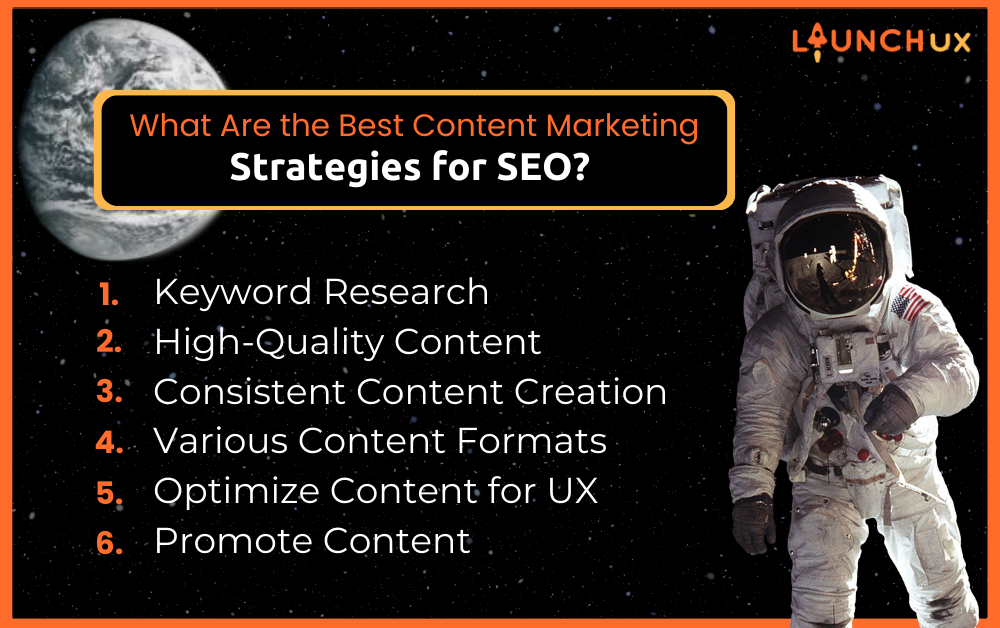Content marketing has become a pivotal component of any successful marketing strategy. By creating and sharing valuable content, businesses can attract and engage their target audience, building brand authority and trust. However, the true power of content marketing lies in its ability to enhance SEO efforts, driving organic traffic and improving search engine rankings. This blog will explore the best content marketing strategies for achieving SEO success, offering practical tips and insights to help you elevate your online presence.
Understanding Content Marketing
Content marketing is a strategic approach focused on creating and distributing valuable, relevant, and consistent content to attract and retain a clearly defined audience. Unlike traditional marketing, which often involves direct promotion, content marketing aims to educate, inform, and entertain the audience, ultimately driving profitable customer action. Quality content is the cornerstone of content marketing, helping businesses establish themselves as industry leaders and build lasting relationships with their audience.
The Relationship Between Content Marketing and SEO
Content marketing and SEO are intrinsically linked, with each playing a crucial role in enhancing the other. Effective content marketing can significantly impact SEO by improving search engine rankings, driving organic traffic, and increasing visibility. Keywords are at the heart of this relationship, serving as the bridge between what users are searching for and the content you provide. High-quality content that incorporates relevant keywords can boost your site’s SEO performance, making it easier for search engines to understand and rank your pages.
Best Content Marketing Strategies for SEO
1. Keyword Research and Optimization
Keyword research is the foundation of any successful SEO strategy. By identifying the terms and phrases your target audience is searching for, you can create content that addresses their needs and interests. Tools like Google Keyword Planner, SEMrush, and Ahrefs can help you discover high-traffic keywords relevant to your industry. Once you’ve identified your keywords, optimize your content by naturally incorporating them into your titles, headings, meta descriptions, and body text. Avoid keyword stuffing, as this can negatively impact user experience and SEO.
2. Creating High-Quality, Engaging Content
High-quality content is informative, engaging, and tailored to your audience’s needs. It provides value, answers questions, and solves problems. To create such content, focus on originality, accuracy, and depth. Use a variety of content types to keep your audience engaged, such as blog posts, videos, infographics, and case studies. Incorporate storytelling to make your content more relatable and memorable. Engaging content not only attracts visitors but also encourages them to spend more time on your site, reducing bounce rates and improving SEO.
3. Consistent Content Creation and Publishing
Consistency is key in content marketing. Regularly publishing fresh content keeps your audience engaged and signals to search engines that your site is active and up-to-date. Develop a content calendar to plan and organize your publishing schedule, ensuring you consistently deliver new content. Regular updates can help you stay relevant in your industry, keep your audience informed, and improve your site’s SEO by providing more opportunities for keyword integration and backlinks.
4. Using Various Content Formats
Diversifying your content formats can appeal to different audience preferences and enhance your SEO efforts. Articles, videos, podcasts, and infographics each offer unique benefits and can reach different segments of your audience. For instance, videos can improve user engagement and increase time spent on your site, while infographics can simplify complex information and encourage social sharing. By offering a mix of content formats, you can cater to various learning styles and keep your audience engaged.
5. Optimizing Content for User Experience
User experience (UX) is a critical factor in both content marketing and SEO. A well-designed, user-friendly website can improve readability, navigation, and overall satisfaction. Ensure your content is easy to read by using clear headings, short paragraphs, and bullet points. Optimize your site for mobile devices, as mobile-friendly sites are favored by search engines and offer a better experience for users on the go. Additionally, improve page load times to reduce bounce rates and keep visitors engaged.
6. Promoting Content and Building Backlinks
Promoting your content is essential for reaching a wider audience and improving SEO. Share your content across various channels, such as social media, email newsletters, and online communities. Engage with your audience by responding to comments and encouraging discussions. Building backlinks from reputable sites can also boost your SEO by signaling to search engines that your content is valuable and trustworthy. Reach out to industry influencers, collaborate with other businesses, and participate in guest blogging to acquire quality backlinks.
Measuring and Analyzing Content Performance
Tracking and analyzing your content performance is crucial for refining your strategies and achieving better results. Analytics tools like Google Analytics and SEMrush can be used to monitor key metrics, such as organic traffic, bounce rate, and conversion rate. Evaluate which content types and topics resonate most with your audience and adjust your strategy accordingly. Regularly reviewing your performance data can help you identify areas for improvement and optimize your content marketing efforts for maximum impact.
Achieving SEO Success with Content Marketing
Content marketing is a powerful tool for enhancing SEO and driving organic traffic to your website. By implementing the best content marketing strategies, such as keyword research, high-quality content creation, consistent publishing, diverse content formats, user experience optimization, and effective promotion, you can achieve SEO success and elevate your online presence. Integrating these strategies will not only improve your search engine rankings but also build brand authority and trust with your audience.
Have you tried any of these content marketing strategies? Share your experiences and tips in the comments below! For professional content marketing and SEO services, contact LaunchUX today and let us help you drive new revenue to your business.





